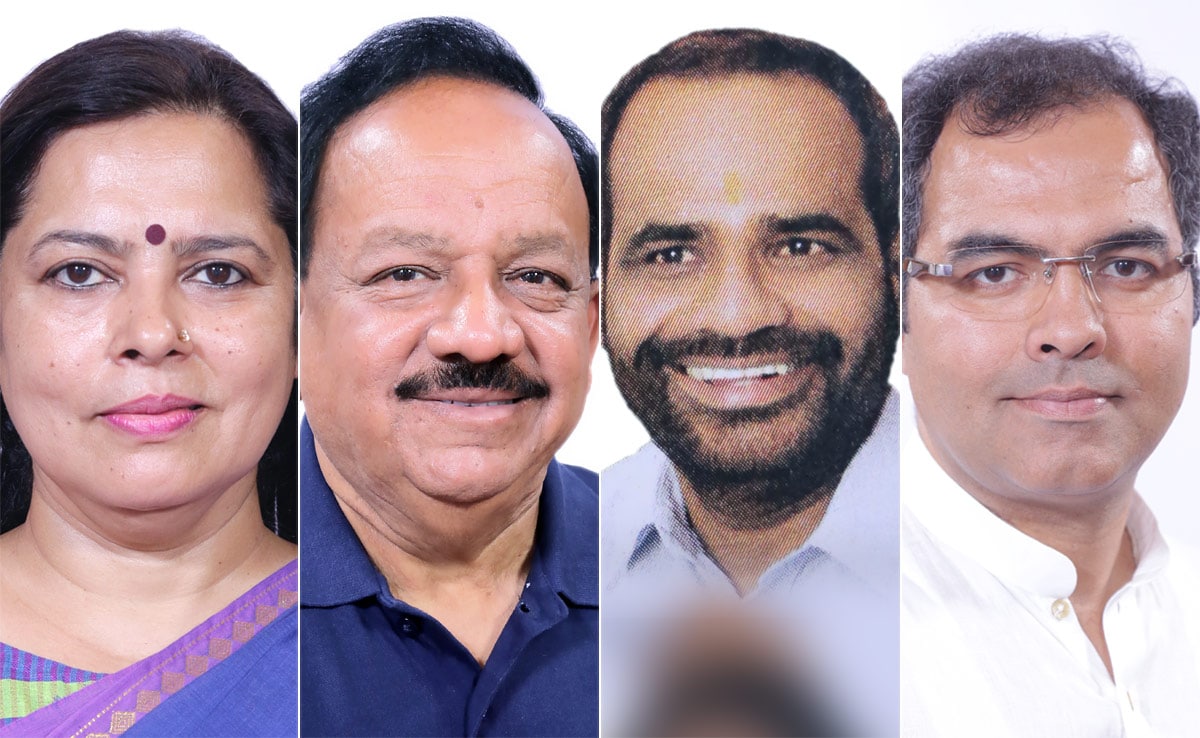
The BJP has dropped six out of its seven Lok Sabha MPs in Delhi as candidates
New Delhi:
The BJP’s two lists of candidates for the Lok Sabha election send a clear signal – anti-incumbency is high on the leadership’s mind as it finalises poll picks. The party may be dismissive of the Opposition’s challenge in public, but the 267 nominees finalised so far suggest that it is brainstorming over every seat. And nowhere is this more evident than in national capital Delhi.
The BJP won all seven seats in Delhi in the 2014 and the 2019 elections. Despite the winning streak, the party has changed six out of its seven candidates, singer-turned-politician Manoj Tiwari being the only survivor among sitting MPs.
Out of the MPs who were dropped, Harsh Vardhan, Meenakshi Lekhi, Ramesh Bidhuri and Parvesh Sahib Singh Verma had recorded back-to-back victories in 2014 and 2019. The others dropped are cricketer-turned politician Gautam Gambhir and singer Hans Raj Hans.
BJP leaders have stressed that winnability is the key factor behind the selection of candidates. Mr Bidhuri and Mr Verma, it is learnt, lost marks for controversial remarks that put the party in a spot. Mr Gambhir had earlier said that he had urged the party leadership to relieve him of his political duties so that he can focus on cricket assignments. Soon after he was dropped as a candidate, Mr Vardhan, too, announced that he is quitting politics.
The six new faces the BJP has chosen for the Delhi seats are Bansuri Swaraj, lawyer and daughter of BJP stalwart, late Sushma Swaraj, Yogendra Chandoliya, Harsh Malhotra, Leader of the Opposition in Delhi Assembly Ramvir Singh Bidhuri, businessman and traders’ leader Praveen Khandelwal and Kamaljeet Sehrawat. Barring Bansuri Swaraj, the other five candidates are seasoned politicians with significant experience at the organisation level.
Why Manoj Tiwari Survived
One of the most popular stars in the Bhojpuri film industry, Mr Tiwari started his political career with the Samajwadi Party before moving to BJP. He was elected to Lok Sabha from North-East Delhi in 2014 and repeated a victory in 2019. Mr Tiwari, who has also served as Delhi BJP president, has a considerable following among migrants from the Purvanchal region that spans eastern Uttar Pradesh and western Bihar. Between the 2014 and 2019 elections, Mr Tiwari’s winning margin jumped by a whopping 2 lakh votes.
Mr Tiwari was also at the forefront of the BJP’s offensive against the Aam Aadmi Party government over the now-scrapped liquor policy.
The Congress-AAP Alliance Factor
Under a seat-sharing understanding within the INDIA Opposition bloc, the AAP and the Congress will be contesting four and three seats in Delhi, respectively. In the 2019 polls, the AAP and the Congress had a vote share of about 18 per cent and 22 per cent, respectively. The BJP had nearly 57 per cent votes. In 2014, the AAP had about 33 per cent vote share and the Congress over 15 per cent. The BJP knows that this time, the Opposition vote will not get divided, thanks to the INDIA alliance. And it is in no mood for a break in its 7-0 streak.




